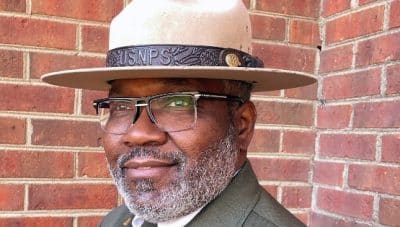
The U.S. Senate Intelligence Committee released a report on foreign threats against the country just before a hearing was held with expert witness testimony.
“Protecting American Innovation: Industry, Academia, and the National Counterintelligence and Security Center,” was held Wednesday to discuss the report, and is the first of several hearings to come.
“I think we all understand that the traditional model of intelligence that kind of involved post World War II — where we, the Brits, the Russians had a series of espionage agents oftentimes working out of an embassy and basically trying to discover information and secrets about a foreign adversary,” Virginia Senator Mark Warner, chair of the Senate Intelligence Committee, said during Wednesday’s hearing.
The spy versus spy model in the intelligence world is history.
“Our nation now faces a dramatically different threat landscape than it did even a couple of decades ago,” Warner said.
Countries attempting to access American intelligence target colleges and universities and businesses in the private sector. Warner said $600 billion a year in intellectual property is stolen from the U.S.
“New threats and new technologies mean that we need to make serious and substantive adjustments to how we address the issue of counterintelligence if we are to protect America’s national and economic security,” Warner said.
The U.S. must look at the challenges presented.
Warner said that the CHIPS Act may lead the nation to realize investment in other technologies is necessary. Before his political career, Warner was in the technology industry, and he said he saw that the People’s Republic of China was leading 5G technology, as well as setting rules and protocols for the technology.
China has stolen more American personal and corporate data than all other countries combined, according to Warner.
Warner said that the report is the result of years of research which came to several conclusions. The U.S. faces a wide variety of threats from Russia, China and other countries. Threats are directed at private sector American entities that are not part of the American intelligence community. “They are going after the financial sector, our energy sector.” Cybercrime is on the rise and personally identifiable information is the currency. The U.S. intelligence community is not prepared for the entire American population to receive cyber threats.
Warner said that the report reveals problems within the country’s intelligence approach, but does not designate solutions. Hearings such as Wednesday’s will help find solutions. Questions raised include: What role should academia and industry play? Are legislation policy changes necessary? What government protection is needed for academia? How can the SIC play a role?
“It’s my hope that America maintains that leadership role [in technology],” Warner said.
Sen. Marco Rubio, vice chair of the SIC, said that threats come from a variety of countries and means now.
“Our entire system is set up in a way” that a government steals intelligence from another government, Rubio said.
And students in institutions of higher learning are at greatest risk: China hopes to gain influence over young Americans and bring them to their way of thinking so that in 20 years that young American is then working in a large American corporation or in elected office.
“This is a multi-faceted new-era type of challenge, for which our agencies simply weren’t created,” Rubio said. He said the hope is for the SIC to understand how to clarify the mission ahead, how to provide well defined authorities and conclude whether it has the necessary resources.
William R. Evanina is founder and CEO of Evanina Group & former director of the National Intelligence & Security Center (NCSC).
His testimony Wednesday stated that the Communist Party of China poses a threat to the U.S.’s “unparalleled freedom” with “persistent, strategic and sometimes destructive” cyber attacks.
“We are in a terrorism event,” he said, and the event requires “a degree of urgency of action.”
The private sector and universities in the U.S. must be part of the conversation to protect intelligence. According to Evanina, China is already after data provided by the CHIPs Act and Inflation Reduction Act in the U.S.
“This is a counter-intelligence issue,” he said.
Michelle Van Cleave was director of Senate Security from 2020 to 2021. She said “intensifying actions” against the U.S. are taking place, and the country must identify, assess and defeat foreign intelligence operations.
“The best defense is a good offense,” Van Cleave, Senior Advisor for the Jack Kemp Foundation, said. However, the U.S. is not prepared for pre-emptive action. Without the discipline of a national program, counter intelligence in the U.S. will measure imperfectly.
Dr. Kevin Gamache is Vice Chancellor and Chief Research Officer at Texas A&M University System.
“One of the most important roles universities play is free research and disseminating knowledge,” Gamache said. American universities are “a magnet for students and researchers worldwide to join forces in science.”
But technology at universities is under siege by foreign countries. The federal government must require a mandatory disclosure of foreign travel and collaboration of university professors, and encourage a strong relationship between universities and the FBI. Federal funding for teachers and students in research would help.
Robert Sheldon is Director of Public Policy & Strategy for CrowdStrike.
Innovation is an essential theme of the American story,” Sheldon said. The American private sector is “incredibly diverse.” CrowdStrike protects national banks, family-owned farms and business startups.
According to Sheldon, the private sector faces “a punishing array of cyber threats,” including intelligence attacks and attacks against the supply chain.










